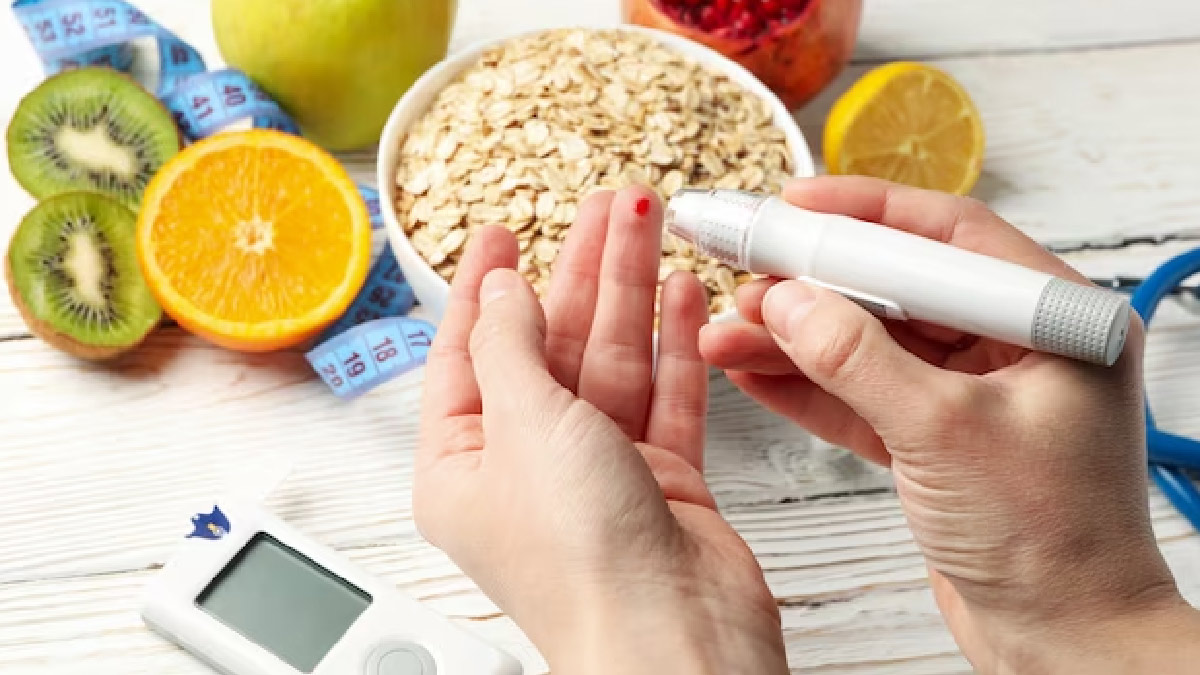
Diabetes is a chronic condition that affects 53.7 crore people around the world, and the number is predicted to rise to 64.3 crore by 2030 and 78.3 crore in 2045.
In India, about 10.1 crore people are living with the condition, as per an Indian Council of Medical Research-India Diabetes (ICMR INDIAB) study published in 2023.
Table of Content:-
Given the alarming data, it is important that we, as individuals, take all necessary measures to reduce our risk of diabetes. This starts with making healthier dietary choices and being aware of the small mistakes we make in our day-to-day lives, including the speed with which we eat our food. In fact, some studies suggest that eating too quickly can increase one’s risk of developing diabetes. To get the facts right, we spoke to Dr Bimal Chhajer, former consultant at AIIMS and Director, SAAOL Heart Centre, New Delhi.
Also Read: Can You Eat Carbs If You Have Diabetes? Expert Answers
Can Eating Fast Raise Your Risk Of Diabetes?

Before delving into whether or not eating fast increases a person's risk of developing diabetes, let's understand what slow and fast eating actually are.
Slow eating aids the initial stages of digestion by facilitating better chewing and giving the stomach more time to signal the brain when it's full, reducing the likelihood of overeating.
In contrast, eating fast leads to a larger food intake in a short span of time, not allowing the body to register fullness and leading to overconsumption.
This may lead to a rise in blood glucose levels, warned Dr Chhajer.
"Fast food consumption can make it more difficult for the body to control the amount of glucose it absorbs, which over time may lead to insulin resistance," he explained, adding that insulin resistance is a condition in which the body's cells lose their sensitivity to insulin, which raises blood sugar levels.
A 2019 study published in Scientific Reports found that people who eat quickly have a higher risk of developing diabetes, even after accounting for other factors like age, weight, and lifestyle habits.
Researchers further noted that other eating habits, like snacking or skipping breakfast, didn't show a significant independent association with diabetes risk. This suggests that slowing down meals might be a simple, effective way to help prevent diabetes.
The Risk Of Overeating And Weight Gain

According to Dr Chhajer, people who eat fast may also overeat because they don't give their brains enough time to register feelings of fullness. This excessive consumption of calories, particularly from processed and high-energy foods, is often associated with obesity and weight gain, he shared.
As per StatsPearls Publishing, obesity is a common risk factor for type 2 diabetes. It suggests that maintaining a healthy weight is crucial for preventing diabetes, as the risk of developing the disease dramatically increases with a rising BMI. While a man's lifetime risk of developing diabetes jumps from 7% to 70% when his BMI increases from under 18.5 kg/m2 to over 35 kg/m2, a woman's risk shoots up from 12% to 74% with the same BMI increase.
Moreover, it is also important to watch out for the kind of food selected.
“Fast-food consumers may have a tendency to choose processed items that are heavy in refined sugars and carbs, which can further affect blood sugar levels and raise the risk of diabetes,” Dr Chhajer shared further.
Also Read: What Does An Ideal Breakfast Look Like For Diabetics: Foods To Eat And Avoid
‘Slow Eating Is A Healthier Choice’

Given how eating too quickly negatively impacts the body, slow eating may be a healthier choice for various reasons. This includes better digestive system performance and improved nutritional absorption.
In addition, eating slowly gives the brain more time to recognise sensations of fullness, which may help with weight management and blood sugar regulation.
On the other hand, eating too quickly can have a number of adverse effects, such as overeating, which can result in overindulging and consuming too many calories; poor digestion, leading to bloating, discomfort, and indigestion; and the most dreaded consequences: obesity and weight gain.
Conclusion
The verdict is clear: eating slowly may be better than eating too quickly. Not only does it help you chew your food better and improve digestion, but it also allows the stomach to absorb all nutrients. Eating slowly also prevents overconsumption and overindulgence and still gives you a sense of fullness. Most importantly, it helps keep your blood sugar level in control and reduces the risk of diabetes. Start by being aware of your eating speed. Take breaks in between each bite and chew your food properly. In addition, do not overserve yourself and practice portion control. Choose a smaller plate or bowl.
Also watch this video
How we keep this article up to date:
We work with experts and keep a close eye on the latest in health and wellness. Whenever there is a new research or helpful information, we update our articles with accurate and useful advice.
Current Version